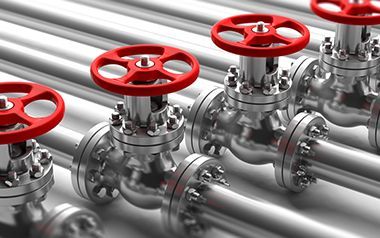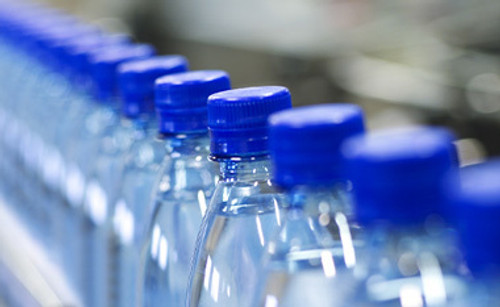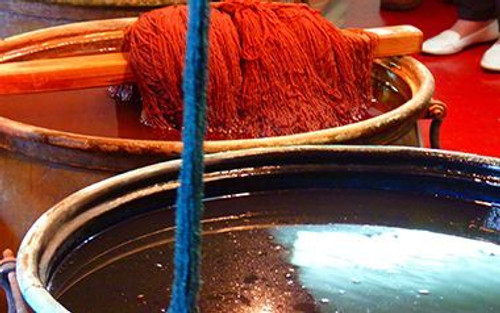Industrial water treatment is a process used for a variety of applications with both simple and complex, effective, low-cost, and compact systems to handle various water purification and separation needs. Industrial water treatment is needed since if unclean water is utilized in the production process then the unwanted substances can have a negative affect product quality. And if water is used in production processes, impurities can directly affect product quality.
Due to industrial water treatment consisting of numerous technologies, this article centers on providing a concise outline of the systems primarily used and encapsulate how they operate to gain greater insight on the most suitable solutions for your facility.
What Is Industrial Water Treatment?
As aforementioned, ultra pure water is produced through the process of industrial water treatment and is ideally used for manufacturing, consumption, removal, etc. Each of these treatment systems have their own features which are designed for different needs within the facility. Although their general makeup might be similar, some of the most widely-used industrial water treatment systems commonly include:
- Boiler feed water treatment systems - dependable at protecting the boiler unit compounds and preventing breakdowns in the pipes which occurs due to the existing contaminants in the feed water.
- Cooling tower water treatment systems - efficient safeguard for cooling tower elements against contaminants present in the circulation or feed water
- Raw water treatment systems - utilized during pretreatment and optimized for the feed water for the purposes of enhancing the production performance and process efficiency
- Wastewater treatment systems - suitable for modifying polluted streams into purified water that can be sufficiently released into treatment facilities or the environment
[custom-specifications]
The Objective Of Industrial Water Treatment
The primary goal of industrial water treatment is to avoid the occurrence of scaling, biological contamination and corrosion and to guarantee that water disposal standards are maintained. It is necessary to protect industrial process equipment such as boiler feeds, piping, and cooling towers from deterioration or failure from dangerous mineral salts. The overall system is capable of failing when there is an imbalance amongst industrial water treatment processes with vital components being susceptible to corrosion due to scaling conditions.
Normally, an industrial water treatment system will encompass various kinds of processes in conjunction to accomplish a certain water quality for different industries such as hotel & resorts, food & beverage, refineries, or steam generation. Other processes that are usually used within industrial water treatment industries include:
- Ion exchange
- Media filtration
- Ultraviolet sterilizers
- Ozonation
- Degasification
- Chemical feeding systems
[/custom-specifications]
[custom-features]
Our Industrial Water Treatment Technologies Include:
- Nanofiltration Systems
- Commercial Reverse Osmosis Systems
- Industrial Reverse Osmosis Systems
- Seawater Desalination Systems
- Water Softening
- Deionization
- Industrial Filtration
These systems are some of the highest quality methods incorporated in different water treatment systems and varies in use conditionally on the specific contaminants needed to be eliminated. Pure Aqua is the industry-leading water purification company in regards to the designing, and manufacturing of high-performance industrial water treatment systems for all industries.
[/custom-features]
[custom-usage]
The Advantages Of Industrial Water Treatment
Industrial water treatment provides various facilities and applications with a myriad of benefits that improves labor and equipment productivity. Untreated water that is incorporated in any industrial plant is a high-risk factor since its containment of unwanted impurities makes the water unsuitable in meeting strict quality requirements. This reason is due to the harmful occurrences which necessitate industrial water treatment such as, the growth of microbiological organisms, the formation of residual wastewater, scaling, and corrosion. These detrimental developments can be prevented with the utilization of industrial water treatment, along with other important advantages, which include:
- Helping to meet local codes and requirements
- Prolonging the equipment process
- Saving water, chemicals, power & energy
- Reducing labor costs
[/custom-usage]
-
Learned a lot
Great information regarding industrial water treatment
- Related Project1:
- https://pureaqua.com/industrial-brackish-water-treatment-for-power-plant-1700-m3-day-iraq/
- Related Project2:
- https://pureaqua.com/industrial-reverse-osmosis-system-for-well-water-treatment-for-agriculture-qatar/
- Related Project3:
- https://pureaqua.com/bwro-system-2x-864000-gpd-canada/
- Related Project4:
- https://pureaqua.com/industrial-brackish-reverse-osmosis-plants-3x126816-gpd-egypt/
 ENGLISH
ENGLISH
 ESPAÑOL
ESPAÑOL العربية
العربية PORTUGUÉS
PORTUGUÉS FRANÇAIS
FRANÇAIS













